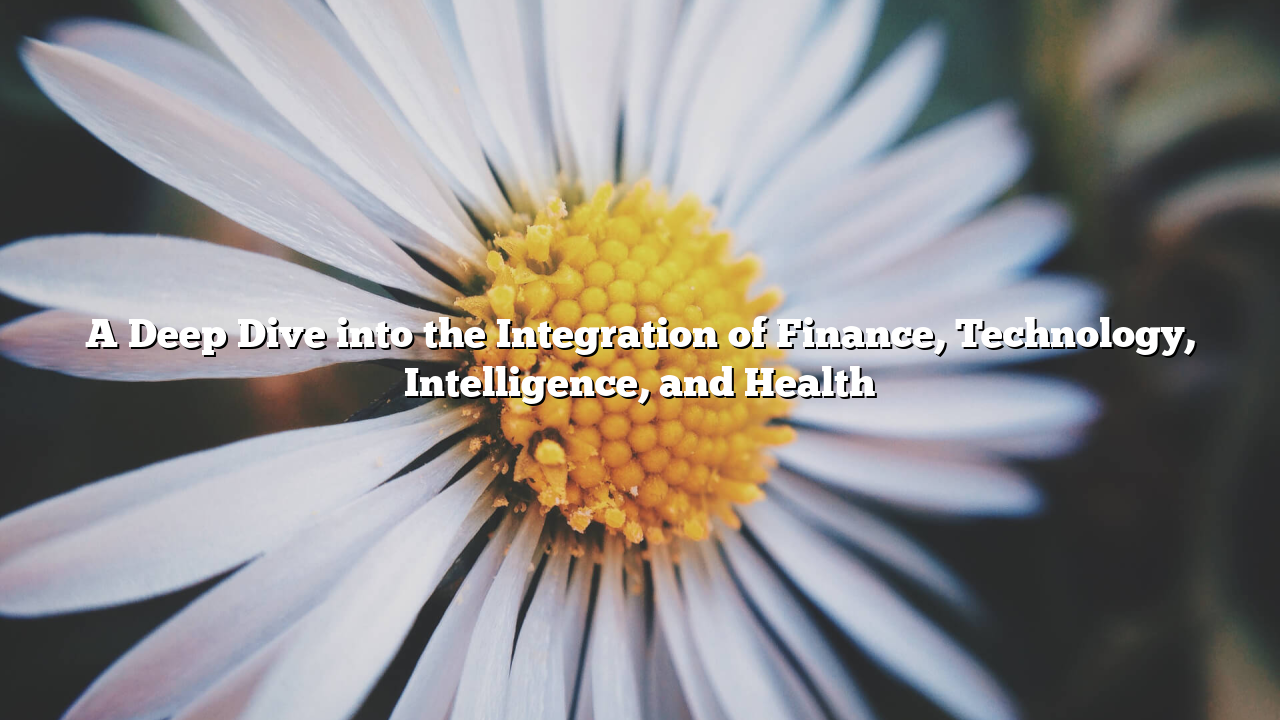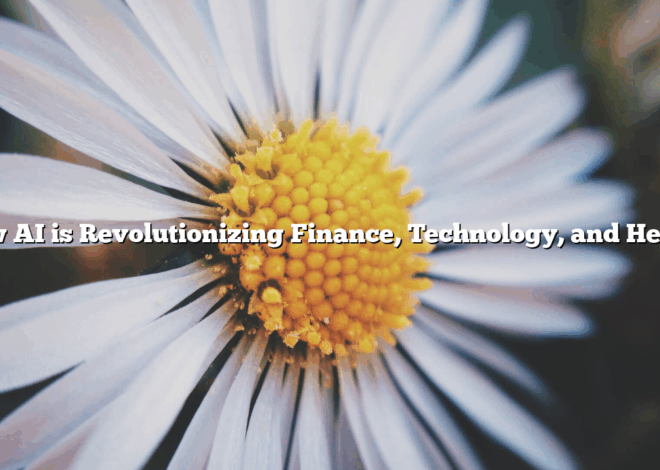
A Deep Dive into the Integration of Finance, Technology, Intelligence, and Health
With innovation at an all-time high, the convergence of financial systems, technological innovation, AI, and health is reshaping how we live. These industries, once seen as separate, are now intertwined, creating new opportunities for individuals, businesses, and governments alike.
Modern Financial Systems
The financial industry has undergone a significant transformation due to advancements in digital innovation. Traditional banking systems are now being disrupted by digital banking.
Mobile payment systems like Venmo are emerging as mainstream payment options, reducing the need for cash. Additionally, the emergence of decentralized currencies such as Ethereum has opened new channels for investment and trade.
Blockchain-based contracts, powered by blockchain, are changing the way we handle agreements. These contracts execute automatically once conditions are met, minimizing the need for third parties.
Bridging the Gap Between Technology and Wellbeing
Technology is not only innovating the financial landscape but also advancing the healthcare sector. Through IoT-powered health tools like fitness bands, individuals can now monitor their heart rate in real time.
Virtual healthcare has become commonplace, especially after the COVID-19 pandemic. Patients can access healthcare professionals without having to visit hospitals physically, thus saving time and reducing exposure.
On the financial side, technology has also enabled instant financial insights. AI-powered investment platforms offer tailored investment strategies based on individual risk profiles.
The Rise of Intelligent Systems
AI is at the heart of this transformation. In finance, AI is used to predict market trends with superior accuracy.
For instance, credit scoring models that once relied on limited historical data now use AI to evaluate a person’s creditworthiness using real-time data sources. This ensures more inclusive lending practices.
In medicine, AI is powering medical diagnostics. Tools like DeepMind can analyze vast amounts of medical data to identify anomalies faster than any human doctor.
Health Empowered by Data
Data is a crucial asset in today’s world. Through continuous monitoring, individuals can track their health metrics to prevent diseases rather than treat them.
Apps like MyFitnessPal encourage healthier living through diet tracking. These technologies also integrate with insurance companies to offer discounts for healthier lifestyles, linking financial benefits directly to well-being.
Digital medical records ensure seamless communication between doctors, specialists, and patients. This not only improves the accuracy of diagnosis but also reduces the chances of medical errors.
What We Need to Watch Out For
Despite the potential, the fusion of these fields also brings challenges. Data breaches are becoming more common as sensitive data is stored online.
AI bias in both financial lending and healthcare recommendations can lead to social injustice. It’s crucial that AI models are trained on representative datasets.
Furthermore, the access gap means that not everyone can benefit from these advancements. Policies must ensure that low-income communities are not left behind.
What the Future Holds
Looking to the future, the convergence of finance, technology, intelligence, and health will continue to evolve. Quantum computing may enable new forms of personalized medicine.
Governments and corporations will need to collaborate on frameworks to ensure ethical use of these technologies. Education and digital literacy will also play a key role in helping the population adapt to these changes.
Ultimately, demo mahjong of finance, tech, AI, and health is not just a trend—it’s the foundation of our future. Those who understand and embrace this evolution will be better prepared for the landscape ahead.


